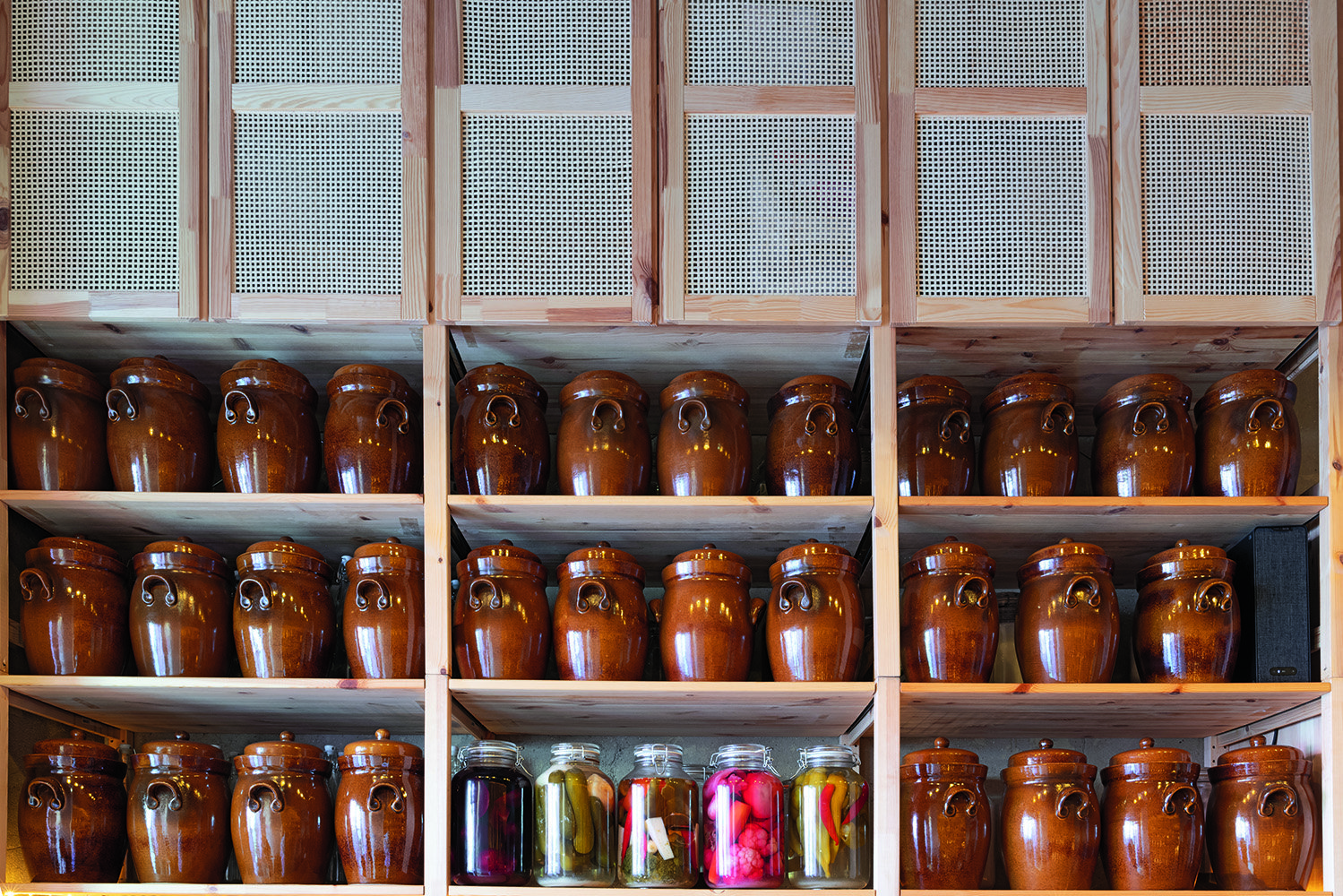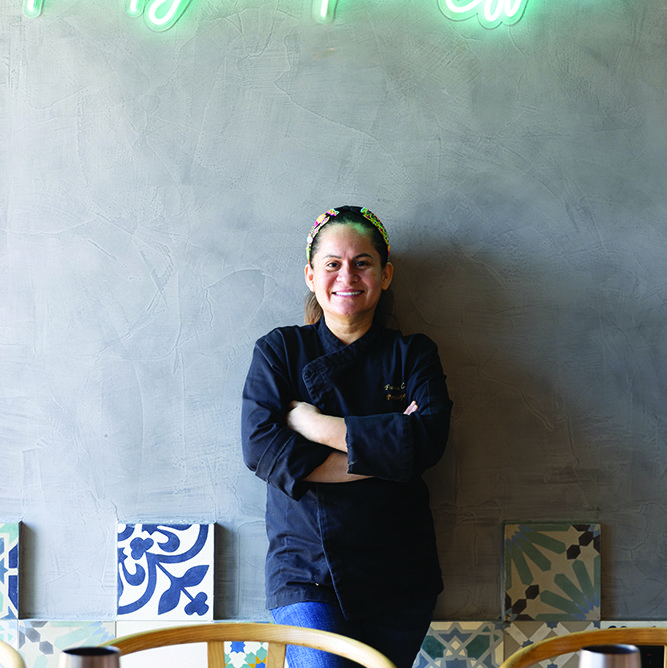Maher El Tabchy is the visionary behind Tabchilli, a venue where you can find a variety of fermented goods and gourmet hot sauces and learn about the fermentation process through a series of workshops. So really, Maher has established more than just a space for fermentation — it’s a community movement and an educational spot. “I wanted to show people – with full transparency – how fermentation works, and I host workshops to educate people so they can share that knowledge with their friends and family,” he says, “I also host pop-ups to allow chefs to get creative with it, and how to educate consumers on fermented foods. It’s really a passion project.” This can be seen with the name, Tabchilli, too; the founder smiles and says, “Tabchy is my family name, so I combined that with the word ‘chilli’ and Tabchilli was born.”
Maher’s initiation into fermentation wasn’t a sudden revelation – but the result of a seed planted in his childhood. “I have the love of fermentation from my mother and grandmother who used to ferment pickles and preserve over the seasons. We also always had chilli on the table. I always enjoyed fermenting and so I really had a soft spot for having so many jars in the house.”
Because of this life experience with fermenting, Maher can honestly say that the process is “trial and error”. He explains, “Do your research, read your books, learn online. But if you don’t do it by yourself, you will never understand how to play with the parameters – time, temperature, textures, flavours and salt level. All of those are personal and there’s never one exact recipe.”
Maher shares an example: “One time I had a couple who were creating the same kimchi but ended up producing different flavours because of the bacteria temperature.” He adds, “That is what’s beautiful about it; fermentation becomes very individual as a process.”
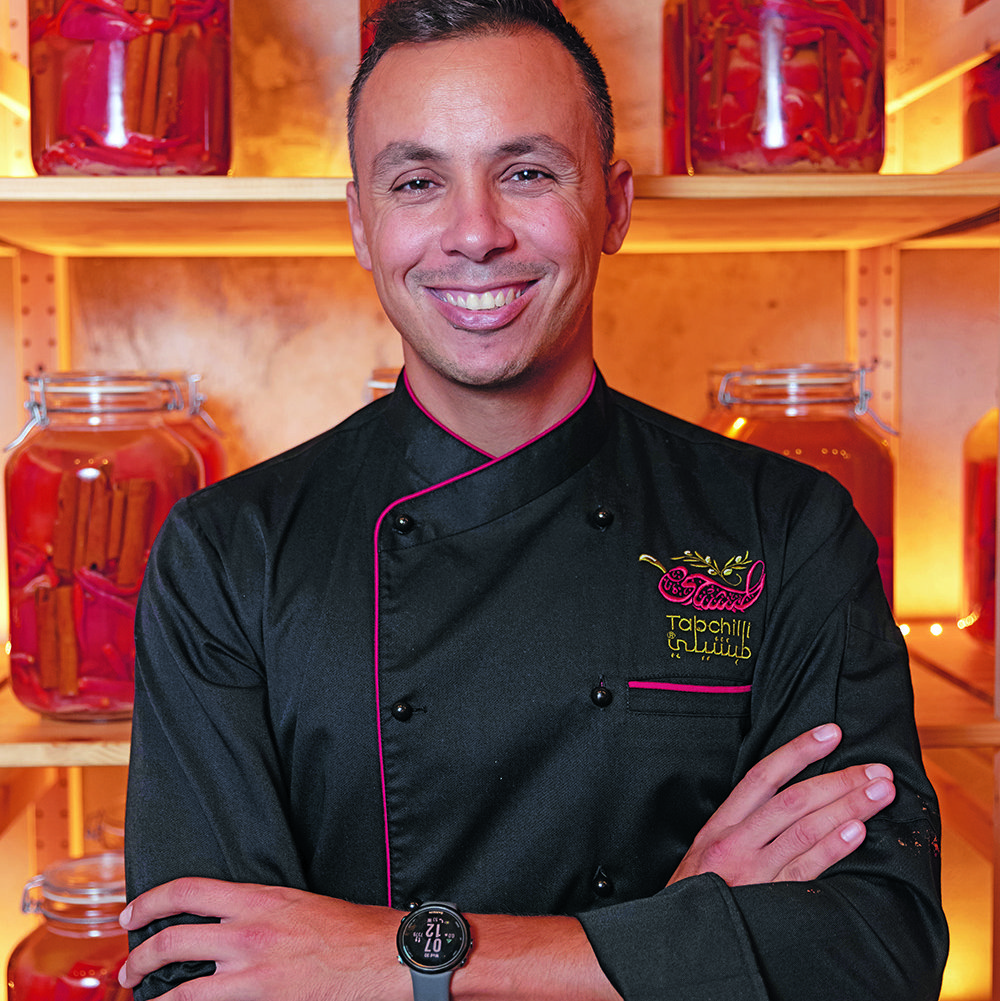
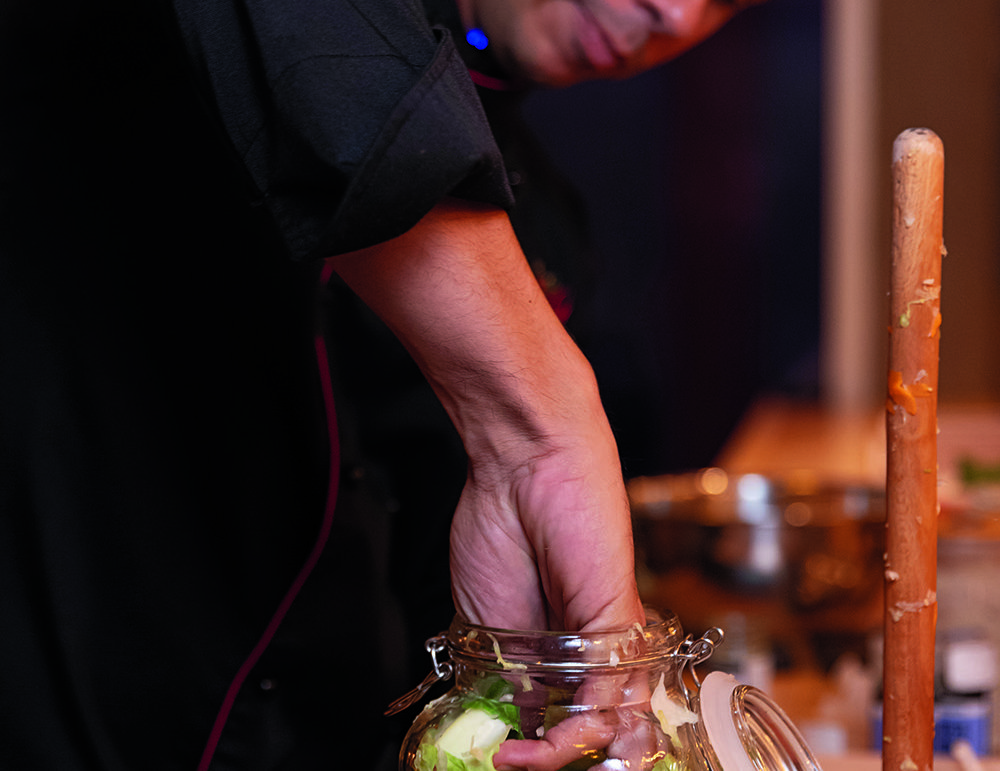
There might be misconceptions surrounding fermentation, and Maher is keen to demystify them. For example, how to tell if a fermented product is safe to consume. He notes, “When something goes really off or bad, which is mould for example, it causes you to be sick. Mould is something you can see, but how do you prevent this?” He says it’s important to have the correct amount of salt to start the process, but testing pH levels is extremely advantageous. “One thing we do is test the pH levels. If it’s below 4.6, it means it’s safe to eat.”
The passion spills through as he continues to detail the difference between pickling and fermenting. “Pickling involves adding vinegar to a product, but vinegar is sterile. If you add vinegar, you’re killing the bacteria. So once you add vinegar to cucumbers and put them in a jar, in two days you get the sour notes that pickling is known for. Fermenting vegetables involves adding salt, water and a few spices. The flavour will take some time to evolve.”
It’s obvious to anyone in Maher’s presence that he eager to share his learnings. He outlines three types of vegetable fermentation techniques; the first two are dry salting and brining, and the third Maher likes to call ‘the kimchi compromise’, which is a combination of the first two.
Along the way, he peppers in information related to the type of water you need to use (non-chlorinated and mineral-rich is best), the type of salt that works best (sea salt not table salt as the latter has iodine which will interfere with the process), the optimal temperature for kimchi (he prefers 22°C), and more. He adds, “Always remember that you are creating a microbiome which has bacteria which want to flourish without any interference.”
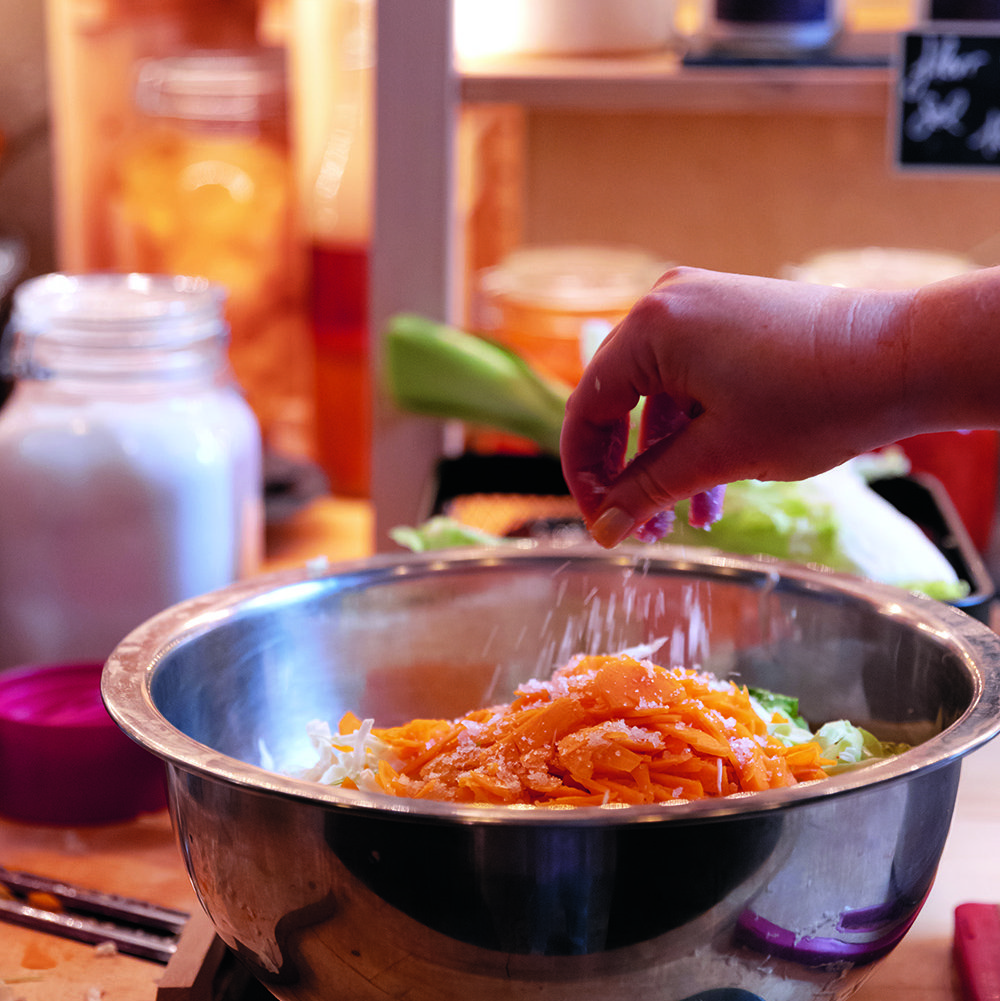
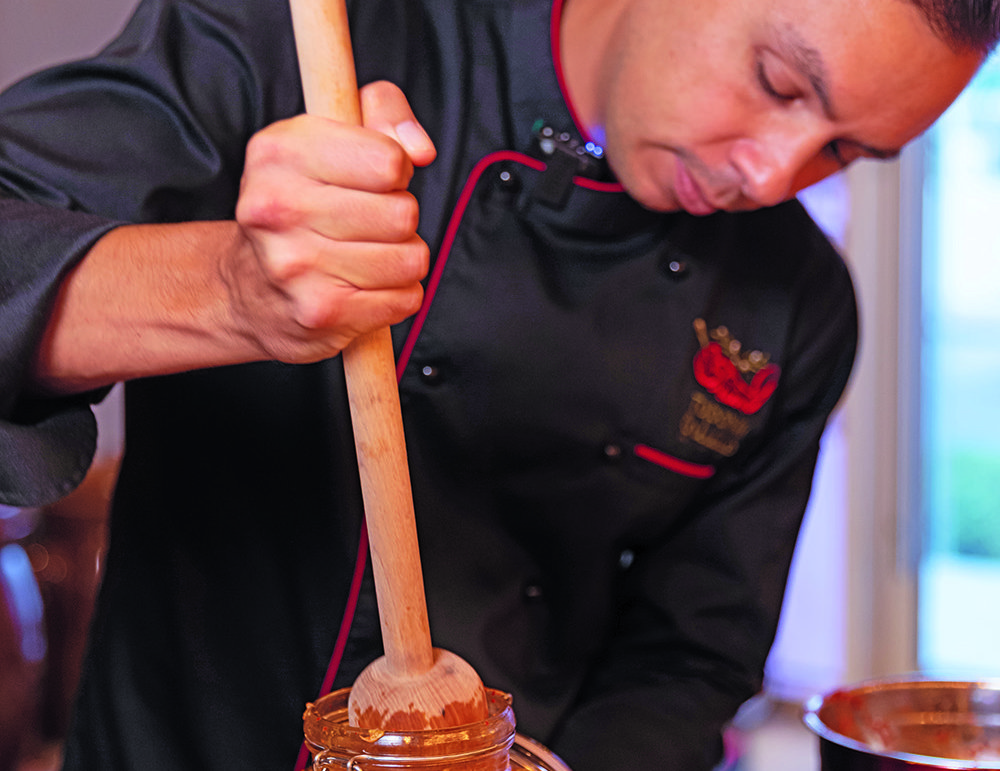
It’s commonly believed that eating fermented food is good for your gut. Maher says that while he cannot comment on how much fermented food should be consumed per day, for example, he thinks that “fermented food definitely is good for one’s diet”. He adds, “Many people who come for our workshops are here to enhance their diet with fermented food.”
The two-and-a-half hour-long workshops are packed with information as well as practical experimentation, and the eager students go home with their jars filled with fermented products. Maher is hands-on: he checks in a few days after the workshop to make sure all is going to plan. “I want to make sure they’re confident and happy with what’s happening. I want people to be confident with what they’re making,” he says.
Beyond what he does, Maher is hopeful for a larger shift in people’s attitudes towards embracing fermented foods. He notes, “I have always wanted to have a small hub for fermentation; it’s not just a shop, I want it to be a movement of fermented food. I believe that fermented food should be available everywhere and shouldn’t be reserved to a niche space.”
Maher isn’t merely championing a method but a philosophy – a return to slower, more mindful consumption. He says, “Fermented food is not new. But now we are in the era of wanting things very quickly. We no longer appreciate or take the time for slow food. What is nice about fermentation is that it’s the passing on of tradition.”
DON’T MISS
Tabchilli’s fermentation and culinary workshops are great experiences.
Follow @tabchilli to keep track of dates.
Listen to our podcast interview with Maher where he delves into the history and intricacies of fermentation: Nourish by Spinneys.
